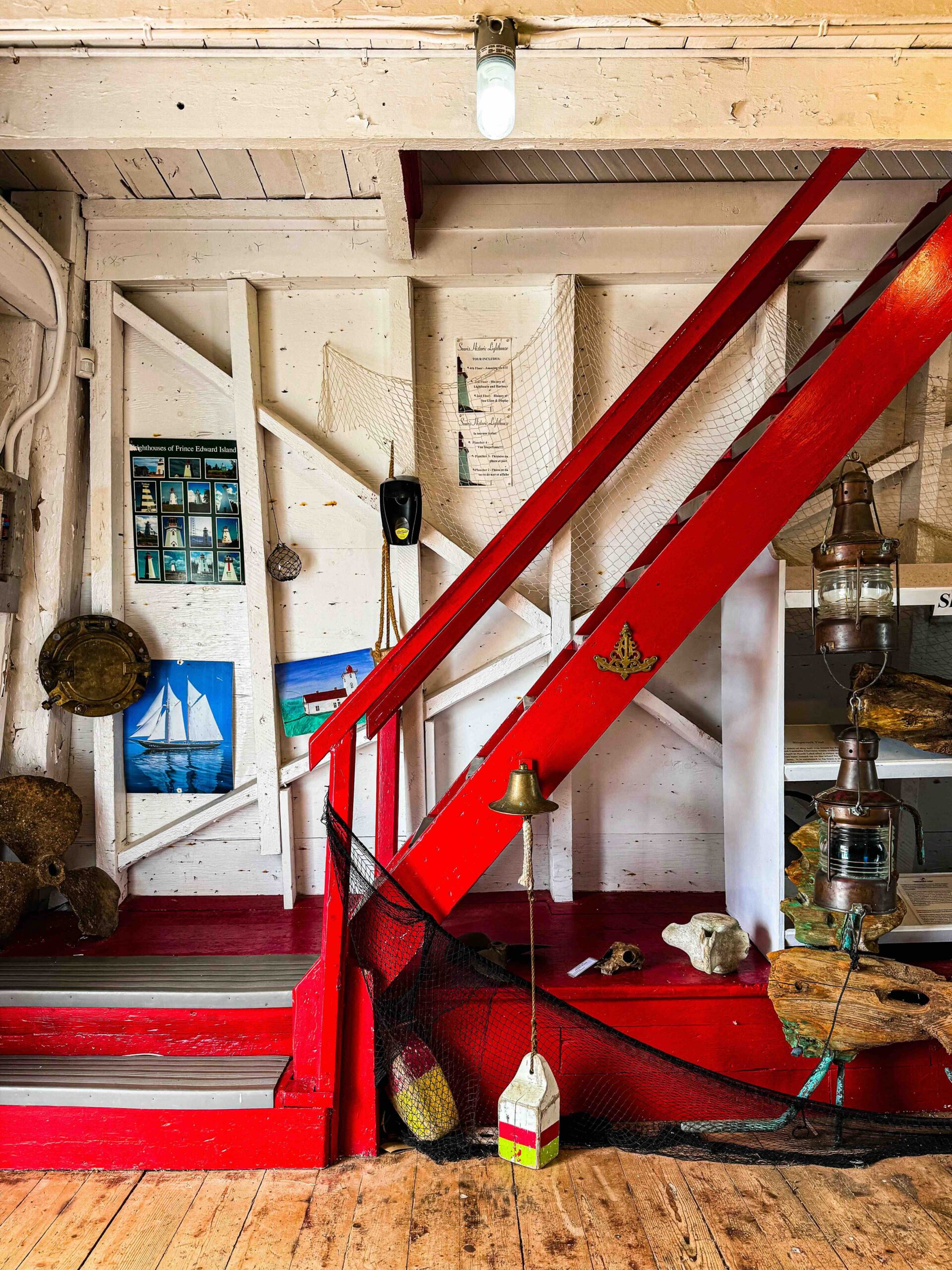

Is it possible to create a healthy relationship with regret?
Is it not antithetical to the very nature of regret, by definition: a painful, uncomfortable truth of wishing something in the past was different than it is. That comment, action, relationship, moment, text, argument, exit, entry, yes, no, conversational choice; that minor or massive or medium-ish thing that we wish we could do over.
Some regrets fade over time. But, if you’re like me, some of them come knocking again like an unwelcome visitor, arriving precisely when you least expect her. Sometimes she shows up in the middle of the night, sometimes at the hint of a familiar scent or sight. Sometimes she pokes gently. Other times she claws viciously, awakening you to mild, massive, or medium-ish grief and self-loathing—and just when you thought you had put her to bed once and for all.
Whether your regrets show up as whispers, sirens, or screams—perhaps all of the above, simultaneously—their signature is pain. And their voice, it’s an eerily familiar one (your own), speaking in refrain:
“If only I had…”
“But what if I hadn’t…?”
“Why didn’t I just…?”
“If only I knew…”
“Why didn’t I know…?”
“I should have realized…”
If we are alive, we have regrets.
But we don’t have to remain in the same old shame relationships with our regrets. Nor do we have to maintain denial, hostility, or avoidant relationships with them.
Some regrets fade over time. But, if you’re like me, some of them come knocking again like an unwelcome visitor, arriving precisely when you least expect her.
In fact, my friend Chris Gonzalez, Ph.D., LMFT—a brilliant marriage and family therapist, and award-winning professor with an expertise in relationships, family, and marriage—recently shared his six-step process for developing a healthy relationship with regret. He posted it on his personal social media account and after I read it, then read it again (and maybe again later that day), I couldn’t stop thinking about it—a process so vivid, so profound, it sat in my soul space for many days. And after I still couldn’t stop thinking about it a week later I messaged him: “Dr. G, I want to know more. And I think others will too. In fact, I think your insights will save lives. May I interview you?”
What he shared on our call is a process for changing the way you navigate regrets—those already in your soul and those in your future.
No, it’s not a quick fix process. Yes, you’ll need to do the work—and then some. And, as Dr. Gonzalez cautions us, this isn’t about going back. “We cannot go back. No part of life was preseason.”
But he also reminds us, “We don’t need to be serving a life sentence of soul suffering.”
Below are excerpts from our interview, including his six steps toward a healthy relationship with regrets of any shape, any size, and any duration.
Carol: “Before we dive into your brilliant six-step process, I keep wondering if, on some level, regret is always relational?”
Dr. Gonzalez: “Yes. It always is, and here’s why I say that. You have your relationships with other people, and you have relationships with yourself. You also have relationships with your environment—in your own context. And for people of faith, they’re going to have relationship with a divine entity.”
Carol: “Which is why I think I was so struck by your process, as a relationship researcher, because it speaks to a profound meta-relationship: regrets exist only because of our relationships, so the relationship we learn to have with regret is always in some way, on some level, part of our system of relationships. Okay, I’m excited for you to talk about how you developed six steps toward a healthier relationship with regret.”
Dr. Gonzalez: “Let me start by explaining that some people relate to their own regret with denial. Some people relate to their own regret by drowning in it, or serving a life sentence of soul suffering, perhaps hoping still to grasp at some control. But instead of denying the past or drowning in it, I wondered if there were another way to relate to one’s own regrets in a healthy way.”
Some people relate to their own regret with denial. Some people relate to their own regret by drowning in it, or serving a life sentence of soul suffering, perhaps hoping still to grasp at some control. But instead of denying the past or drowning in it, I wondered if there were another way to relate to one’s own regrets in a healthy way.
Carol: “I have to admit that the entire process is profound, but the metaphor you use in step one, about creating cognitive spaces and fencing for storing regrets—it’s been a game-changer for me. It’s helping me create boundaries around my thinking about regrets—both those recent and decades old.”
Dr. Gonzalez: “Yes. Step one: Construct a place for regret to be stored. Give it boundaries. Fence it in. Put all of the regrets there. A boneyard of regret, perhaps. It can be a space of any size as your mind is infinite, but it must not be all of the mind space. I would say to put it ‘on the outskirts of town’ and not in a central location. It is important to boundary this mental space so that you know when you are there, but also you know when you are elsewhere. Otherwise, regrets can just wander anywhere in your mind and contaminate anything.”
Carol: “Wow. Okay. The boneyard metaphor is vivid. What do we do next?”
Dr. Gonzalez: “Step two: Lament. Allow yourself sadness, hurt, brokenness, or whatever. Grieve losses of any kind. Where tears are stored up, cry them out. Where shouts are bottled up, free them safely. Give voice to the aching questions. Step three: Love. Give yourself the kind of grace needed to heal. You may need to forgive yourself. You may need to reconcile with yourself. In humility and vulnerability, let loose compassion for oneself.”
Carol: “And until we do that, we really won’t learn from our regrets, right?”
Dr. Gonzalez: “Exactly. In step four, you learn. No pain or suffering is completely void of meaning or some difficult but important wisdom. The regret already hurts and it is unlikely learning will relieve all of the pain, but it can relieve the pain of meaningless pain. Convert suffering into meaning as much as can be done.
Then you go to step five: Leverage. When converting suffering into meaning, seek the most redemptive meaning possible. While in this boneyard of regret, fill your backpack with something worth carrying out. Something of worth for yourself and something of worth for someone else.”
Carol: “As parents, partners, friends, neighbors, colleagues, sisters, daughters, and strangers connected as humans—each of us with a core need to nurture relationships to self and others: wow. So much to think about. Your last step—step six—is one about which I have to admit I probably had the most visceral reaction, in the most positive sense. Because it’s about our power.”
Dr. Gonzalez: “Exactly. Step six: Leave. Since you have your boneyard of regret fenced off, you have the power to leave. Make sure you build a gate so you can get in and out easily, but from which no regrets can escape. And, if any of them do escape into the rest of your life, gently return them to the boneyard. You can revisit as needed. As new regrets emerge you will have a place to put them, but you will also be able to leave them there. Leaving the boneyard of regret is not denial as the boneyard will be there if you ever need it. But do not set up camp there. Leave.”
As new regrets emerge you will have a place to put them, but you will also be able to leave them there. Leaving the boneyard of regret is not denial as the boneyard will be there if you ever need it. But do not set up camp there. Leave.
Carol: [Nodding vigorously, enthusiastically, as if I might explode through our Zoom screen.] “OMG. The leaving—it’s so hard! Too many of us set up camp with self-talk, self-narratives, and other narratives that don’t serve us well. What I love about this notion of the boneyard—and not a garbage dump, not a crime scene, not a nuclear wasteland—is it’s a place where we can and should go to pay homage, but where we don’t need to nor want to nor should live. Yes, revisit as necessary, but don’t stay too long. Pay your respects, honor it, but then get back to your present life.
Okay, a few final questions: Which step is the hardest for you, and for your clients?”
Dr. Gonzalez: “For me, what’s actually hardest is recognizing what qualifies as a regret. Because usually, they don’t announce themselves as regrets; they always come in stealth. And usually, for me, they’ve been there too long already, and suddenly I realize, wait a minute: I know what you are! You sneaky regret: you got me. So, I think just the identification that this is a regret is hardest. But now that I have a process to go through, it’s easier. Before? Regrets were paralyzing. They came in and they could be damning. They shamed. They made this declaration of ‘You’re powerless.’”
Carol: “Oooooh. Say more about regret and how they declare one’s powerlessness.”
Dr. Gonzalez: “That feeling of powerlessness is debilitating. It’s discouraging. And part of this new relationship with regret is developing a relationship with powerlessness. Powerlessness wants to make a broad sweeping statement: ‘You can’t do anything.’ But really it’s more, ‘You can’t do this one thing. You can’t go back in time and change the thing. But there’s a whole bunch of things that you can do in this moment.’”
Carol: “As in, if I’m feeling powerless it probably doesn’t mean I’m actually powerless. Or, as you often say about our narratives: ‘They’re a ruse.’ I love that truth. I should make it a mantra. We have to realize that we don’t have to believe everything we are feeling.”
Dr. Gonzalez: “I also realized there is grief with regret. And one of the things you can do is acknowledge the sadness. Whatever the regret was, whatever that thing was, acknowledge it as sad. Maybe it was the loss of a dream or a loss of a memory you wish you could have had. Or the creation of a memory you wish you didn’t have. But it’s there. And it’s okay to be sad about it without drowning in it. We have to have self-compassion and love.”
Whatever the regret was, whatever that thing was, acknowledge it as sad. Maybe it was the loss of a dream or a loss of a memory you wish you could have had. Or the creation of a memory you wish you didn’t have. But it’s there. And it’s okay to be sad about it without drowning in it.
Carol: “What might that kind of self-compassion, self-love sound like, in our self-talk?”
Dr. Gonzalez: “Self-compassionate talk about regret is something like ‘Okay, that was a mistake. Or an error, or a failure, or whatever. And I’m still a good person. I’m still worthy. I’m still lovable and I’m redeemable. These things can both be true.”
Indeed, they can.
And indeed, you can see why I’m so darn lucky to call Dr. Gonzalez a dear friend. Thank you, Dr. G, for helping us all further understand that relationships are practices; never perfect, always works in progress, and worth our investments—especially as we work on our most precious relationship: with ourselves, and of course with our pasts.
As we fill our backpacks with the worthy tools of humility, forgiveness, vulnerability, and compassion—each an essential tool on our relationship journeys—we’re wise to remember that journeys with regret are not problems to be solved; they are expeditions to be experienced, and maybe even enjoyed. And as we engage them as such, chances are significantly higher we’ll be able to convert our suffering into meaning, as the wise Dr. Gonzalez once said.
You can follow Dr. Chris Gonzalez on social media, or send him a message via his website.


Carol Bruess (last name rhymes with “peace”) is professor emeritus at the University of St. Thomas, Minnesota, studying and writing about relationships. She is highly fluent in emoji, loves parentheticals (I mean, it’s what all the cool kids are doing), and is happy-dancing her way through empty-nesting (although don’t tell her kids; they think she’s all weepy). Check out her books, TEDx talk “Are All Relationships Messy?” and her sewing/design shenanigans over at www.carolbruess.com.
BY Carol Bruess - January 7, 2021
Most-read posts:
Did you know W&D now has a resource library of Printable Art, Templates, Freebies, and more?
take me there
Get Our Best W&D Resources
for designing a life well-lived




Thank you for being here. For being open to enjoying life’s simple pleasures and looking inward to understand yourself, your neighbors, and your fellow humans! I’m looking forward to chatting with you.
Hi, I'm Kate. Welcome to my happy place.
















This is such a beautiful perspective on how to sit with, make space for, and manage regrets in a healthy way. Thank you so much for this.
Debbie, Thank YOU for making space for learning and growth in your life. And for reading. It means a lot to us. Keep on being a beautiful human, growing and emerging from the inside-out.
Debbie, thanks for taking a moment to read and response. I hope it can be helpful.
Oh wow – this is so helpful – and gives words to what I guess I have learned, but didn’t know how to share with someone who has continued to ask me about letting go….Thank you So much!
Thelma, I’m thrilled you found this helpful. The process is changing my life, and I’m finding myself applying the process to other difficult memories and emotions as well. Thank you for your comment here, and for reading!
Thelma, thanks for taking a moment to read this. I am honored that these words spoke an already known experience that did not yet have words. For me, I am usually on the other end of that equation.
how do you develop a healthy relationship without regret ?